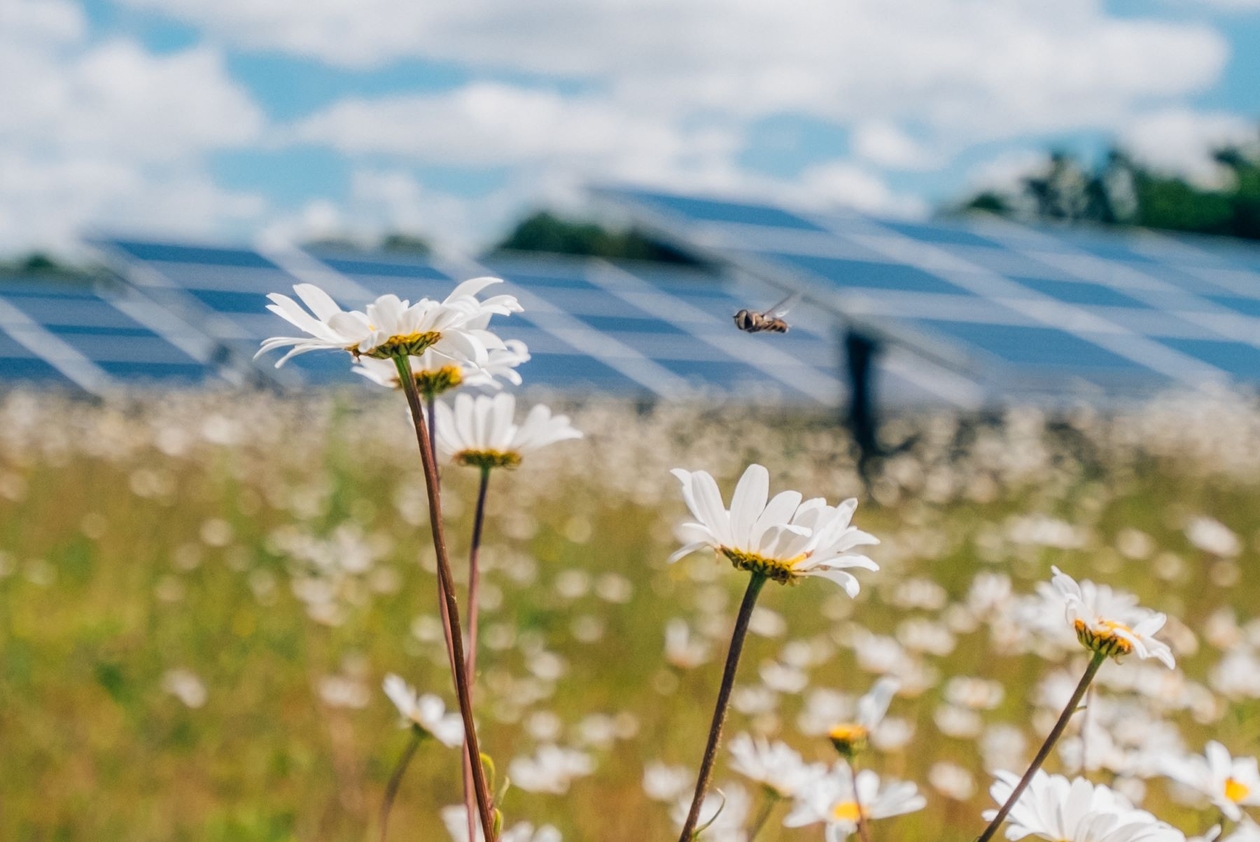New study by Low Carbon and Lancaster University to pioneer state-of-the-art technologies to measure biodiversity on solar farms
Landmark research will combine AI technology alongside acoustic monitoring devices to provide near continuous assessment of pollinators on solar farms
Global renewable energy company Low Carbon in partnership with scientists from Lancaster University, aim to shed new light on the impact of solar farms on nature by deploying artificial intelligence (AI) technology alongside cutting-edge acoustic monitoring devices to assess pollinators.
Led by a researcher at Lancaster University and supported by Low Carbon and the UKRI Engineering and Physical Sciences Research Council, the novel technologies being used will almost continually assess insect pollinators in and around solar farms. This will provide a much richer dataset than traditional survey methods, which generally only provide snapshots throughout the year. Although similar techniques have been successfully used in agricultural settings, this is the first time both technologies have been deployed in tandem in a renewable energy setting.
The study is being conducted at Westmill Solar Park in Oxfordshire, which was originally developed by Low Carbon in 2011, and is believed to be the UK’s first cooperatively run, community-owned solar farm.
By deploying acoustic monitoring devices that measure pollinator activity, alongside Automated Monitoring of Insects (AMI) traps that assess moth biodiversity, and undertaking traditional field surveys within the solar farm and the adjacent land, this new study hopes to:
- Provide key evidence for emerging policies including the need to provide solid and robust data for the UK’s Biodiversity Net Gain policy and how renewables firms measure the impact of development on nature;
- Demonstrate how solar farms could boost pollinator biodiversity compared to traditional farmland;
- Investigate how microclimatic variation within solar farms might impact bees, hoverflies and other invertebrates.
Welcoming the study, ESG and Sustainability Director at Low Carbon, Harriet Parker said:
“At Low Carbon we are committed to creating as much renewable energy capacity as possible, while protecting the environment for future generations. For us, it is not good enough to just be a leading renewable energy producer, we also have to drive positive impact to protect and boost nature and biodiversity. The data already tells us that solar sites can have a positive contribution on nutrient-depleted land that is no longer able to produce food at scale by allowing the land to rest, and I am excited to see what other benefits we can learn about solar from this new study.”
Hollie Blaydes, researcher at Lancaster University, who is leading the study, added:
“We are very excited about this study and look forward to measuring biodiversity using new methods. By harnessing these emerging technologies alongside carrying out traditional monitoring techniques, we hope to gain insight into what the future of biodiversity monitoring might look like at solar farms. The data we collect will also tell us more about how pollinators respond to solar farms, compared to similar land uses, which is key when trying to embed biodiversity benefits into solar developments.”
Funding for the study is being provided by Low Carbon and the UKRI Engineering and Physical Sciences Research Council Impact Acceleration Account, and is being led by Lancaster University researcher, Hollie Blaydes. Low Carbon and Lancaster University have a long-term partnership and have previously worked with Hollie to develop evidence-based recommendations for managing solar farms for pollinators; provide some of the first quantitative evidence of pollinator response to solar farm management and investigate the factors that affect pollinators at solar farms.
Low Carbon and other Lancaster University researchers are also undertaking a separate study looking into the behaviour of queen bumblebees at solar sites by installing 50 bee boxes at Low Carbon’s Rudbaxton Solar Park in Haverfordwest last year and will publish its findings shortly.
-ENDS-
FOR MEDIA ENQUIRIES
Harry Padfield
PR and Public Affairs Manager
Harry.padfield@lowcarbon.com

